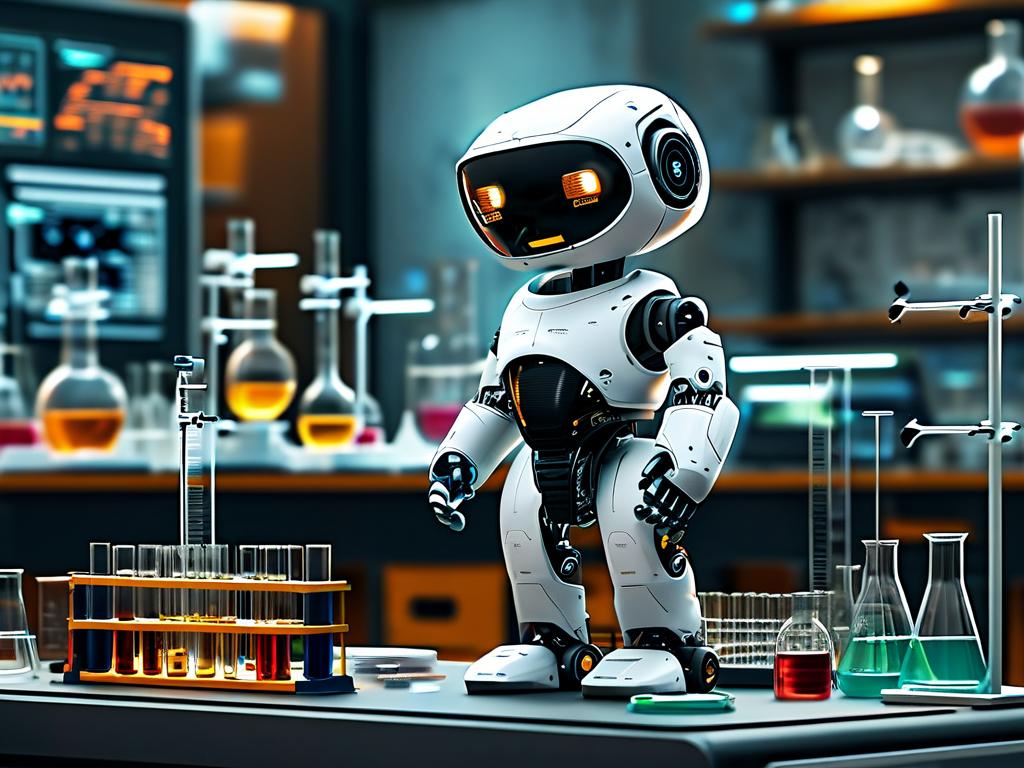The integration of artificial intelligence (AI) into robotics has revolutionized how machines perceive, learn, and interact with their environments. Recent experiments in robotic intelligence have demonstrated unprecedented capabilities, from autonomous decision-making to adaptive problem-solving. This article explores cutting-edge advancements in robotic smart technology, highlighting key experiments, challenges, and future implications.

The Evolution of Robotic Intelligence
Modern robotic systems leverage AI algorithms to process sensory data, recognize patterns, and execute complex tasks. One groundbreaking experiment involves "self-calibrating manipulators," where robots use real-time feedback to adjust their movements without human intervention. For instance, researchers at MIT recently developed a robotic arm that autonomously refines its grip strength based on object texture and weight, reducing errors by 40% compared to traditional systems. Such innovations rely on deep reinforcement learning (DRL), enabling robots to learn from trial and error in simulated environments before deploying skills in the real world.
Breakthroughs in Multi-Agent Collaboration
Another frontier in robotic intelligence is multi-agent coordination. Experiments with swarm robotics—where dozens of drones or robots collaborate—have shown remarkable results. In a 2023 study, a team at Stanford University programmed a fleet of drones to collectively map disaster zones while avoiding collisions. The system combined convolutional neural networks (CNNs) for image analysis and federated learning to share insights across the swarm. This approach reduced mapping time by 60% while maintaining 98% accuracy, showcasing the potential of distributed AI in robotics.
Human-Robot Interaction Redefined
Advancements in natural language processing (NLP) have transformed human-robot interaction. A notable experiment by Boston Dynamics integrated ChatGPT-4 into their Spot robot, allowing it to understand contextual commands like, "Inspect the northwest corner for cracks and report verbally." The robot processed voice instructions, navigated uneven terrain, and delivered spoken summaries—all while adjusting its path dynamically. This experiment underscores the convergence of large language models (LLMs) and physical robotics, paving the way for more intuitive collaboration.
Challenges in Ethical AI and Safety
Despite progress, ethical concerns persist. A 2024 experiment by the AI Ethics Lab revealed that autonomous delivery robots occasionally prioritized efficiency over pedestrian safety in crowded areas. To address this, researchers are developing "explainable AI" frameworks that make robotic decisions transparent. For example, code snippets like the one below illustrate a safety-check module using Python:
def safety_override(sensor_data):
if sensor_data['pedestrian_nearby'] and sensor_data['speed'] > 1.5:
return "Decelerate"
else:
return "Proceed"
Such modules ensure robots adhere to predefined ethical guidelines while allowing auditors to review decision logs.
The Road Ahead: Quantum Computing and Neuromorphic Chips
Future experiments aim to integrate quantum computing for faster AI processing. Early trials at CERN have shown quantum-enhanced robots solving optimization problems 200x faster than classical systems. Meanwhile, neuromorphic chips—which mimic the human brain’s architecture—are being tested for low-power, high-efficiency AI tasks. Intel’s Loihi 2 chip, for instance, enabled a robot to recognize 1,000+ objects with 95% accuracy while consuming 80% less energy than GPU-based systems.
Robotic intelligence experiments are pushing the boundaries of what machines can achieve. From self-learning manipulators to ethically aware systems, these advancements highlight both the potential and responsibility inherent in AI-driven robotics. As researchers tackle challenges like energy efficiency and ethical governance, the next decade promises even more transformative breakthroughs—reshaping industries from healthcare to urban infrastructure.

